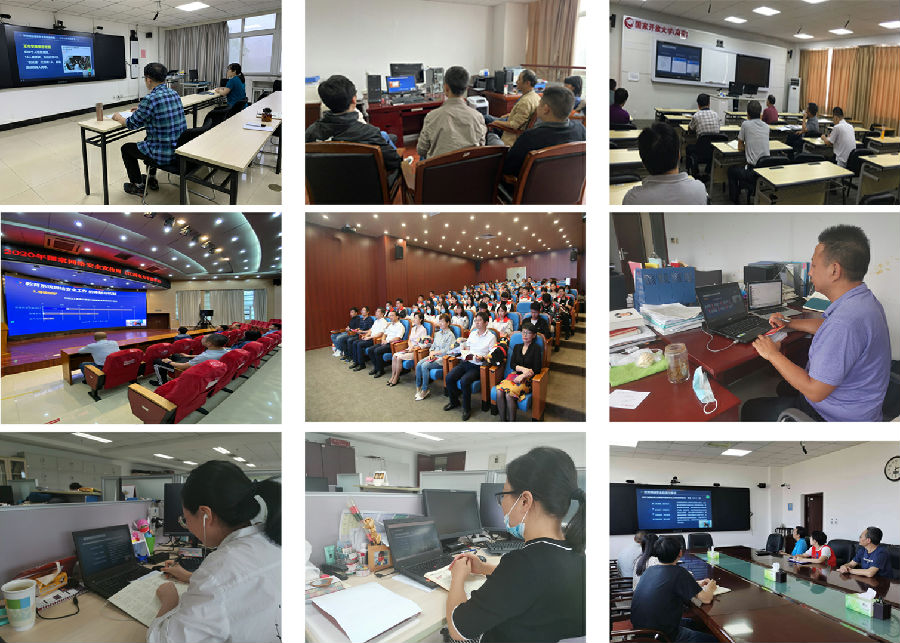 The week from 14-20 September 2020 saw a national-level publicity campaign promoting network security. As an active response to the event, the Open University of China (OUC) held its own network security week on the theme of "Protecting Network Security for the People and by Relying on the People.
The week from 14-20 September 2020 saw a national-level publicity campaign promoting network security. As an active response to the event, the Open University of China (OUC) held its own network security week on the theme of "Protecting Network Security for the People and by Relying on the People.
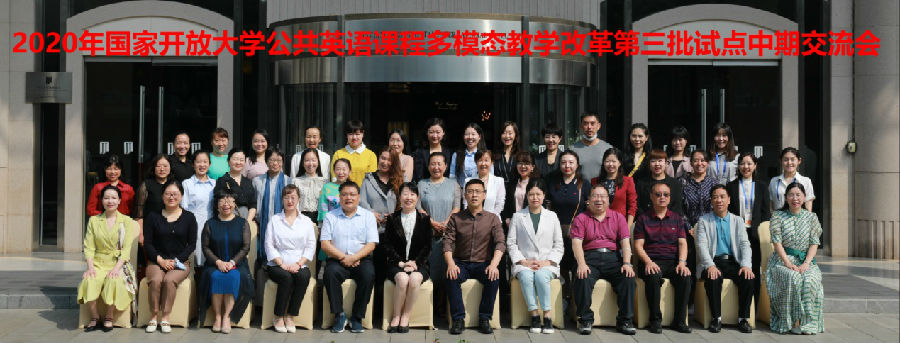 The Open University of China (OUC) held a mid-term exchange meeting for the third round of pilot programmes of multimodal teaching reform in public English in Xi'an, Shaanxi province, from 17 to 18 September 2020.
The Open University of China (OUC) held a mid-term exchange meeting for the third round of pilot programmes of multimodal teaching reform in public English in Xi'an, Shaanxi province, from 17 to 18 September 2020.
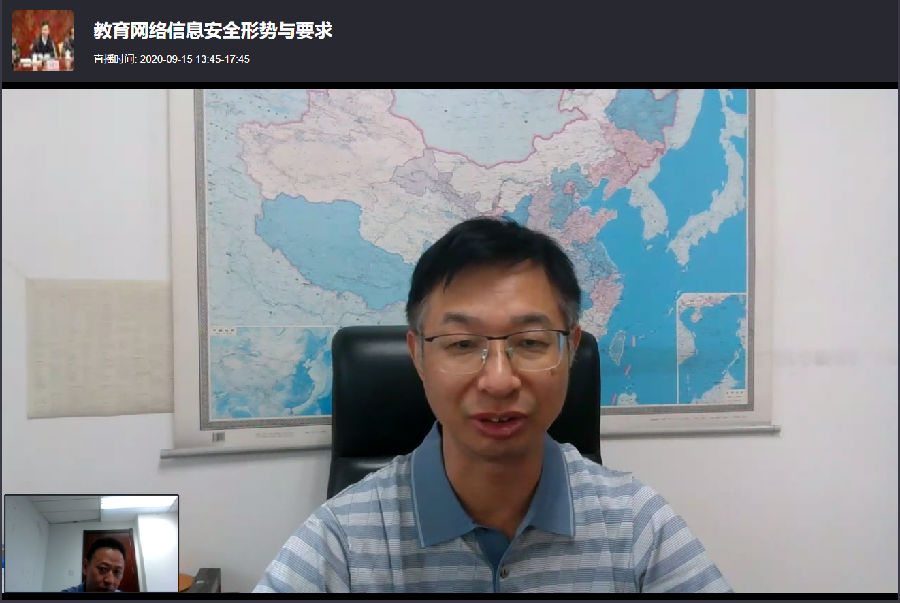 Recently, the Open University of China (OUC) held an online seminar on network security. Zeng Dehua, deputy director of the Education Management Information Centre of the Ministry of Education and director of the Education Information Classified Security Protection Evaluation Centre, was invited to give a report entitled “The Situation and Requirements of Network Information Security in Education.” About 500 faculty and staff from the OUC headquarters and its school running system attended the seminar.
Recently, the Open University of China (OUC) held an online seminar on network security. Zeng Dehua, deputy director of the Education Management Information Centre of the Ministry of Education and director of the Education Information Classified Security Protection Evaluation Centre, was invited to give a report entitled “The Situation and Requirements of Network Information Security in Education.” About 500 faculty and staff from the OUC headquarters and its school running system attended the seminar.
 On 15 September 2020, the headquarters of the Open University of China (OUC) held a meeting to report on the work of the inspection tour for the 2nd final examinations of the 2020 spring semester. About 110 university leaders, middle-level cadres, inspectors, and staff involved in examinations, attended the meeting.
On 15 September 2020, the headquarters of the Open University of China (OUC) held a meeting to report on the work of the inspection tour for the 2nd final examinations of the 2020 spring semester. About 110 university leaders, middle-level cadres, inspectors, and staff involved in examinations, attended the meeting.
At the Fujian University for Older Adults (UOA), 50,000 students signed up in 2017, 70,000 in 2018, and 160,000 in 2019, with the mobile-registration terminal getting 560,000 hits within the first 2 hours.
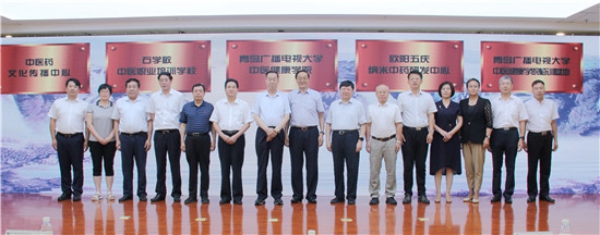 The opening ceremony of the School of Traditional Chinese Medicine (School of TCM) at the Qingdao branch of the Open University of China (OUC) was held on 19 August, 2020. The school is a new type of open-education school for training health-management personnel to meet health-industry needs and those of an aging society. It is accessible to anyone and aims to combine theory with practice, relying on the university's extensive resources and the strength of its health-management teaching team.
The opening ceremony of the School of Traditional Chinese Medicine (School of TCM) at the Qingdao branch of the Open University of China (OUC) was held on 19 August, 2020. The school is a new type of open-education school for training health-management personnel to meet health-industry needs and those of an aging society. It is accessible to anyone and aims to combine theory with practice, relying on the university's extensive resources and the strength of its health-management teaching team.
 Recently, the Qingdao Branch of the Open University of China (OUC), the Qingdao division of Beijing Electric Vehicles (BJEV) (a subsidiary of Beijing Automotive Group (BAIC)),and Qingdao Guoxuan Battery held a ceremony at Qingdao BJEV to sign a university-business cooperation agreement, and unveil a new programme in which the Qingdao Branch and the two enterprises would combine strengths and integrate resources,
Recently, the Qingdao Branch of the Open University of China (OUC), the Qingdao division of Beijing Electric Vehicles (BJEV) (a subsidiary of Beijing Automotive Group (BAIC)),and Qingdao Guoxuan Battery held a ceremony at Qingdao BJEV to sign a university-business cooperation agreement, and unveil a new programme in which the Qingdao Branch and the two enterprises would combine strengths and integrate resources,
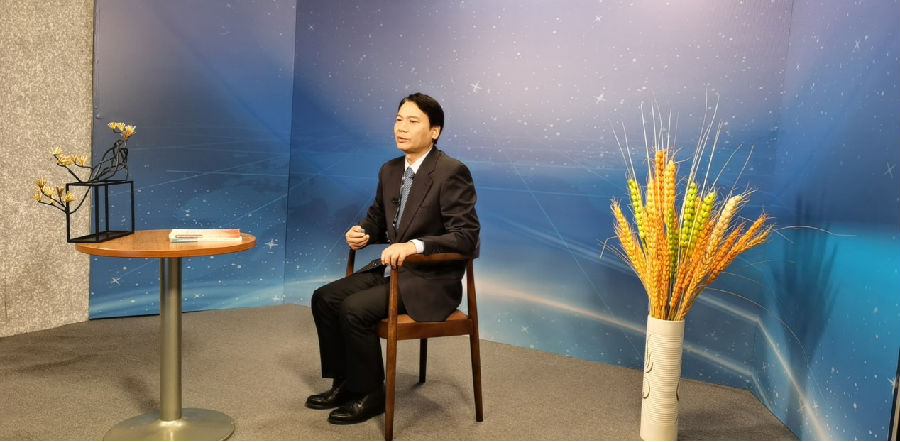 Recently, the Open University of China (OUC) project, "Quality Lectures by Famous Teachers", launched another course, "Open Discussion of Grain and Food Safety", open to learners from both inside and outside the OUC system. Experts from China Agricultural University (CAU) and well-known agricultural enterprises have been invited to lecture in it.
Recently, the Open University of China (OUC) project, "Quality Lectures by Famous Teachers", launched another course, "Open Discussion of Grain and Food Safety", open to learners from both inside and outside the OUC system. Experts from China Agricultural University (CAU) and well-known agricultural enterprises have been invited to lecture in it.